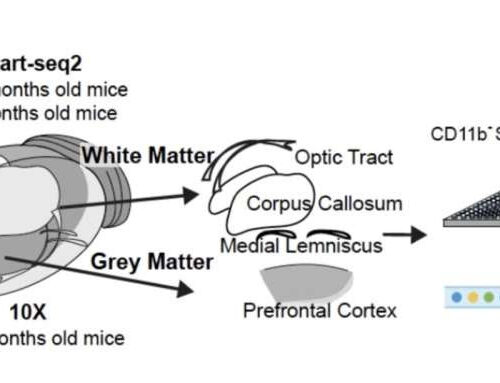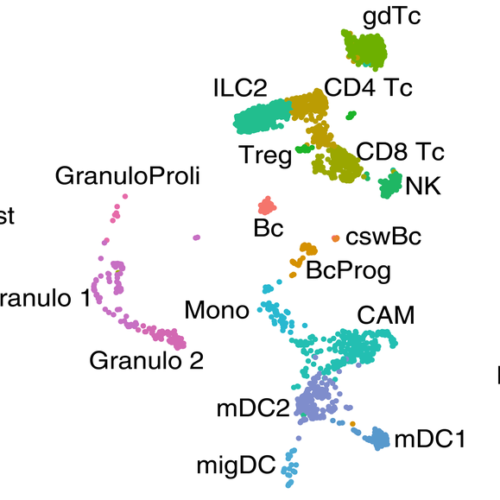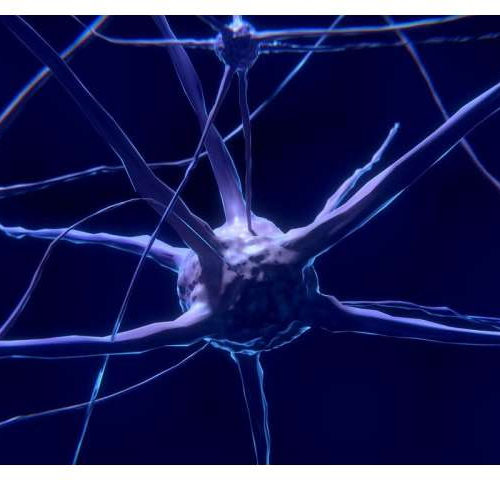LMU researchers demonstrate that certain immune cells already play an important role in the early stages of multiple sclerosis. Multiple sclerosis (MS) is a chronic inflammatory disease in which the immune system attacks the central nervous system. This impairs the transmission of signals between the brain and body and can lead to deficits in vision,...
Category: <span>Neurology</span>
Largest-ever genetic study of epilepsy finds possible therapeutic targets
Epilepsy genetic architecture from large-scale genetic association studies. Credit: Nature Neuroscience (2024). DOI: 10.1038/s41593-024-01747-8 The largest and most diverse study to date of epilepsy’s genetic factors has revealed new potential targets for treatment, both shared by and unique to different subtypes of epilepsy. The findings point to factors involved in how neurons communicate and fire, suggesting potential...
Throat problems could impair autonomic nervous system’s ability to regulate blood pressure
News Release 11-Sep-2024 Research suggests problems at junction between air and food passages may ‘overwhelm’ the Vagus nerve Peer-Reviewed PublicationUniversity of Southampton Research suggests problems at junction between air and food passages may ‘overwhelm’ the Vagus nervePatients with throat problems were less able to regulate their blood pressure in a new study led by the...
Form of B12 Deficiency Affecting the Central Nervous System May Be New Autoimmune Disease
Medscape Medical News Lucy Hicks July 01, 2024 Researchers have identified a form of B12 deficiency caused by autoantibodies that specifically affects the central nervous system. Discovered while studying a puzzling case of one patient with inexplicable neurological systems, the same autoantibody was detected in a small percentage of healthy individuals and was nearly four...
Genetic Therapies Bring Change to Neurology Clinics
Jim Kling PHOENIX – New therapies are on the horizon for genetic neuromuscular diseases, and this will raise both hopes for patients and challenges for neurologists. Following successful genetic treatments for ALS, hereditary amyloidosis, and spinal muscular atrophy, therapies for conditions like Charcot-Marie-Tooth (CMT) neuropathy are set to change neurology practice, according to Nicolas Madigan,...
Year-by-Year Blood Pressure Variability From Midlife to Death and Lifetime Dementia Risk
Melina G. H. E. den Brok, MD1,2; Jan Willem van Dalen, PhD1,2; Zachary A. Marcum, PharmD, PhD5; et alWim B. Busschers, PhD3; Tessa van Middelaar, PhD1,2; Nina Hilkens, PhD1; Catharina J. M. Klijn, PhD1; Eric P. Moll van Charante, PhD3,4; Willem A. van Gool, PhD4; Paul K. Crane, MD, MPH6; Eric B. Larson, MD, MPH6,7;...
Study shows that adaptive immune responses can cause cellular loss in the aging brain
by Ingrid Fadelli, Medical Xpress To characterize aging effect at single cell resolution, Kaya et al. used two different single-cell RNA sequencing (scRNA-seq) methods. For plate-based scRNA-seq (Smart-seq2). They isolated and dissociated grey matter from the frontal cortex and white matter tracts from the corpus callosum as well as the optical tracts and the medial...
B cells of the immune system discovered in the meninges
UNIVERSITY OF MÜNSTER IMAGE: DIFFERENT TYPES OF WHITE BLOOD CELLS FOUND IN THE OUTER LAYER OF THE MENINGES OF MICE. EXAMINING AROUND 3,000 CELLS, SCIENTISTS ANALYSED WHICH GENES ARE ACTIVE IN EVERY SINGLE CELL AND IDENTIFIED 19 DIFFERENT CELL TYPES. ONE DOT CORRESPONDS TO AN INDIVIDUAL CELL. THE CLOSER THE DOTS ARE TO EACH OTHER,...
Bedside EEG test can aid prognosis in unresponsive brain injury patients
by Beck Lockwood, University of Birmingham Credit: Pixabay/CC0 Public Domain Assessing the ability of unresponsive patients with severe brain injury to understand what is being said to them could yield important insights into how they might recover, according to new research. A team at the University of Birmingham has shown that responses to speech can be measured...
Smokers and hypertensive individuals have higher risk of sudden death from brain bleed than previously believed
by University of Helsinki Contrary to the previous data, a Finnish study clarifies that smoking and high blood pressure do not protect from death in patients suffering from subarachnoid hemorrhage, the most lethal stroke subtype. In fact, subarachnoid hemorrhage kills smokers and hypertensive individuals even before they reach hospitals, and therefore, previous studies that did...



